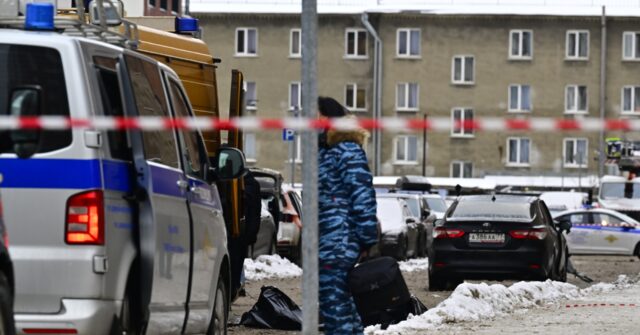On December 17, 2024, a significant incident unfolded in Moscow as Lt. General Igor Kirillov, the head of Russia’s nuclear and chemical forces, lost his life in a bomb blast. Reports indicate that the explosive device, concealed within a parked scooter, was remotely detonated, resulting in the general’s immediate death alongside that of his assistant. The incident has drawn substantial attention due to the nature of the target—an essential leader in Russia’s military infrastructure—and the method of assassination, which is indicative of sophisticated planning and execution by the perpetrators.
Details surrounding the explosion reveal that it had the force equivalent to approximately 300 grams of TNT, as reported by the Russian state news agency Tass. Eyewitness accounts and state television footage depicted a chaotic scene marked by shattered windows and damaged buildings, a stark reminder of the violence that occurred. This bombing stands out not only due to its lethal outcome but also because of its implications regarding security and potential threats that military figures in Russia might face, particularly in the metropolitan areas of the country.
In the aftermath of the explosion, the Russian Investigative Committee began a thorough investigation to uncover the circumstances surrounding the incident. A spokesperson for the committee, Svetlana Petrenko, stated that forensic experts and operational services were deployed to the scene to gather evidence and draw insights from the blast’s aftermath. The committee’s swift characterization of the bombing as a terrorist attack suggests that the Russian authorities are preparing for potential political fallout, aiming to identify and address security vulnerabilities within the city.
Reports from various news sources, including Reuters, have suggested a possible Ukrainian connection to the assassination. Citing a Ukrainian security source, there are claims that Kyiv’s security service was involved in orchestrating the attack on Kirillov. If these allegations prove accurate, it would represent a significant escalation in the ongoing conflict between Ukraine and Russia, showcasing the lengths to which Ukraine may go to undermine key Russian military figures and exert pressure on the Kremlin during wartime dynamics.
The significance of Kirillov’s position cannot be overstated; he led the Russian troops responsible for counteracting threats from chemical, biological, and radioactive contamination, underscoring the critical role these forces play in modern military strategy. His assassination raises concerns about the safety and security of other military officials and the efficacy of Russia’s domestic protection measures against such targeted attacks. There is a context of ongoing aggression and hostilities between the two nations, further intensified by recent developments including the violent deaths of other Russian military personnel, hinting at a coordinated effort to strike at high-value targets.
The assassination of General Kirillov is a grim reflection of the turbulent security landscape in Russia and the operational realities faced by its military leadership. With each high-profile incident, the potential for retaliation or further escalation grows, complicating an already tense geopolitical environment. This event highlights not just the fragility of security for military leaders but also poses significant questions about the evolving nature of warfare, intelligence operations, and counter-terrorism efforts amidst a backdrop of international conflict. As investigations continue, the implications of this event will likely reverberate through both Russian military structures and the broader geopolitical landscape in which they operate.

